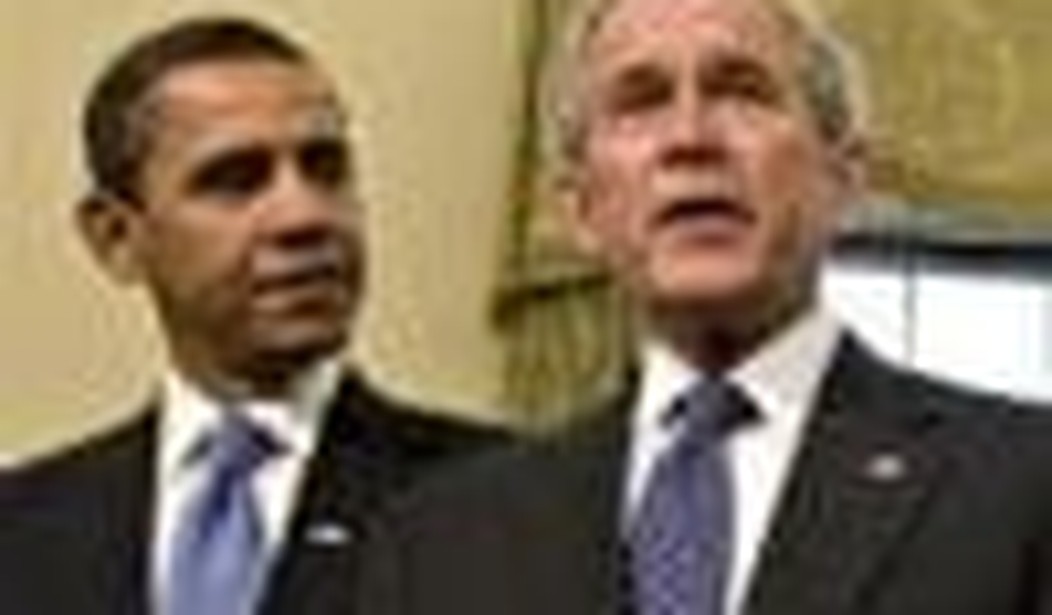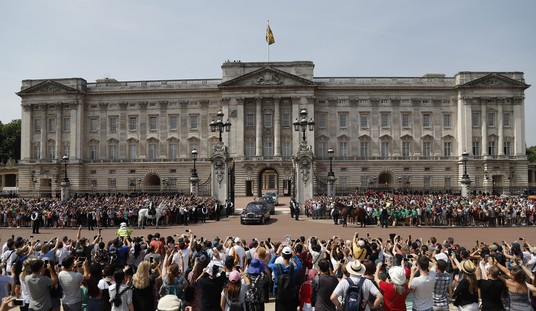Everyone was so focused on the part of President Obama’s Middle East speech about a Palestinian state within the 1967 borders that his transformation into a democracy-spreading, regime-changing neocon was missed. He proclaimed the goal of American foreign policy in the Middle East is “to promote reform across the region, and to support transitions to democracy.” Those are more polite words for incremental regime changes of all the undemocratic governments.
The beginning of President Obama’s term was marked by a concerted effort to convince the Iranian regime that the U.S. does not seek its removal. An “outstretched hand” was offered to rogue states and funding was cut to organizations undermining the Iranian regime. The Obama administration reversed course over time, especially since the advent of the Arab Spring. Human rights was always vocally supported, but not in such a loud fashion. Now, policy is being overhauled to make promoting freedom its central component. What a George W. Bush thing to do.
The Obama administration first began warming up to regime change in Iran, even if it did not have a strong strategy to accomplish it. The Green Revolution forced President Obama to begin altering his language and in September, Secretary of State Clinton let it be known that she desires regime change.
“I can only hope that there will be some effort inside Iran, by responsible civil and religious leaders, to take hold of the apparatus of the state,” she said. She denied that she was calling for regime change, but it is obvious that is what she meant. The lack of a coherent strategy in support of this objective can be criticized, but it’s apparent that this is the hope of the administration and some small actions have been taken to help the Iranian protesters.
The Obama administration then supported regime change in Egypt after it became clear that President Mubarak was on his way out. Vice President Biden initially said Mubarak should not step down and that he is not a dictator, but this soon changed as the strength of the revolution was realized.
Up next was Libya. The Obama administration called on Muammar Gaddafi to give up power, but began a confusing policy by not making this an objective of the military campaign. The stated goal was to prevent Gaddafi from bloodily massacring the rebels in Benghazi at the very last moment and to stop the attacks on civilians. President Obama continues to speak in support of Gaddafi’s removal, but says military resources will not be used for this purpose. This is a policy of regime change, even if its implementation sends mixed signals.
Yemen followed. The U.S. initially refrained from coming against President Saleh, but the resilience of the uprising and the ongoing violence exercised by his forces resulted in a similar reversal in policy. The U.S. began working behind the scenes with the Gulf Cooperation Council to push Saleh to step down to no avail. President Obama is now calling for his resignation. Saleh’s rhetoric has taken an anti-American turn and his forces are permitting al-Qaeda to advance. On Sunday, his loyalists trapped ambassadors from the U.S. and Europe inside the embassy of the United Arab Emirates. Clashes between his supporters and opponents are escalating after he bailed on another agreement. These developments make it certain that the U.S. policy of regime change towards Yemen will sharpen.
U.S. policy towards Syria is now just shy of regime change. Secretary of Defense Gates initially responded to the revolution by saying the military should “empower a revolution” as was done in Egypt. He denied calling for regime change, just as Clinton did earlier in regards to Iran, but that’s exactly what he did. In President Obama’s speech last week, he said: “President Assad now has a choice: he can lead that [democratic] transition, or get out of the way.” The official U.S. stance is that Assad still has time left to change his ways but the “window is narrowing.”
In the case of Bahrain, President Obama did not call for regime change but he did call for reform. This reflects the top-down approach towards democratic transition (and therefore, regime change) that he will exercise towards governments whose quick collapse is feared. Obama’s approach towards creating a democratic Middle East may differ from Bush’s, but the goal is the same and just as grandiose and idealistic.
There are many positive things about the speech Obama gave and the policy he articulated, but it has a fatal flaw: It does not recognize and confront the reality that the opposition movements in the Middle East are diverse and there are certain parties we must favor. No program has been outlined to bolster the liberals over the Islamists and no policy to knock the Muslim Brotherhood off-balance.
In fact, Obama’s call for the creation of a Palestinian state within the 1967 borders helped the oppressive governments he opposes and made the Israeli-Palestinian conflict the main topic of discussion when, for once, it was not. In so doing, a political environment is created that is more favorable to Islamists as citizens are more likely to support them when Israel is the issue instead of economic improvements and political liberalization. It has also taken the focus off of the massive human rights abuses of Assad and Saleh, when the speech could have put enormous pressure on them.
The Bush-Obama policy of aggressively promoting freedom and democracy in the Middle East needs to recognize there are friends and enemies among the opposition movements.









Join the conversation as a VIP Member